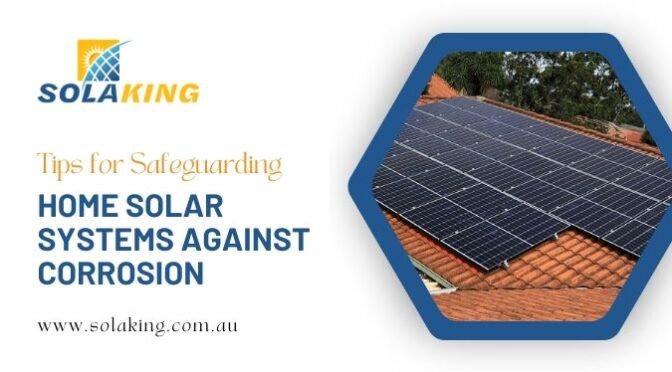Solar power systems are a significant investment in sustainable energy for your home. However, like any outdoor equipment, solar panels and their components are susceptible to corrosion over time. Corrosion can significantly impact the efficiency and lifespan of your solar system. This guide will explore effective strategies to protect your home solar systems against corrosion, ensuring they continue to provide clean energy for years to come.
What Causes Solar System Corrosion?
Before diving into prevention methods, it’s crucial to understand what causes corrosion in solar power systems:
- Exposure to moisture and humidity
- Salt air in coastal areas
- Pollutants in urban environments
- Temperature fluctuations
Corrosion usually affects metal components such as mounting hardware, wiring, and connectors.
Choose Corrosion-Resistant Materials
The first line of defence against corrosion starts with the initial solar panel installation in Logan. Investing in quality, corrosion-resistant materials upfront can save significant maintenance costs in the long run. Thus-
- Opt for solar panels with corrosion-resistant frames (e.g., anodized aluminium)
- Use stainless steel mounting hardware
- Select marine-grade wires and connectors for coastal installations
Apply Protective Coatings
Protective coatings can provide an additional barrier against corrosive elements. So-
- Use anti-corrosion sprays on metal components
- Apply silicone conformal coatings to protect electrical connections
- Consider powder coating for mounting structures in highly corrosive environments
Reapply coatings periodically as part of your maintenance routine.
Ensure Proper Installation
Proper solar panel installation in Logan is crucial in preventing water ingress and reducing corrosion risk. Work with certified installers who understand local environmental challenges.
- Use appropriate sealants around mounting points
- Ensure correct cable management to prevent water trapping
- Install panels at the recommended angle to facilitate water runoff
Implement Professional Cleaning and Inspection
Routine maintenance is key to early detection and prevention of corrosion. Consider professional inspections annually, especially in harsh environments.
- Clean panels and mounting structures regularly to remove corrosive debris
- Inspect for signs of corrosion during cleaning sessions
- Check and tighten connections to prevent water influx
Manage Moisture and Humidity
Controlling moisture is essential in corrosion prevention. Proper moisture management can significantly extend the life of your solar system. For that, you need to-
- Ensure proper ventilation around solar components
- Use desiccants in junction boxes to absorb moisture
- Install vapour barriers in high-humidity areas
Upgrade Components Proactively
Sometimes, proactive replacement is the best line of defence. Proactive upgrades can prevent system-wide issues and maintain efficiency.
- Replace visibly corroded components immediately
- Upgrade to more corrosion-resistant parts in problem areas
- Consider replacing older components before they fail due to corrosion
Monitor System Performance
Early detection through monitoring can save costly repairs down the line. Hence, regular performance monitoring can help detect corrosion-related issues:
- Use solar monitoring systems to track energy production
- Investigate sudden drops in efficiency, which may indicate corrosion problems
- Keep records of maintenance and performance for long-term analysis
Invest in Home Solar Systems From Solaking
With proper solar panel system installation and maintenance, it can prove advantageous in the long run. Thus, trust in our solar panel experts. Call to place your booking today!




